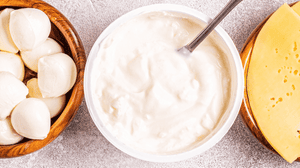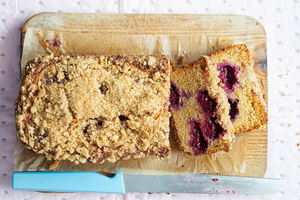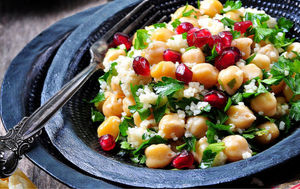You might well have heard of Irritable Bowel Syndrome (IBS), but like many people, not know much about it even if you suffer from it yourself. IBS is actually an incredibly common condition, and it is estimated that up to 15% of the population may have it, with women being most regularly affected by it[i]. Despite its prevalence, the condition itself is fairly complex, and experiences can vary from one person to the next.
What all IBS sufferers can agree on is how debilitating the condition is capable of being, and how difficult it can be to manage at times. It can be hard to live with, and hard to live with someone who has it, so why not take five minutes to learn a little bit more about the disorder, what causes it, and what you can do to help?
What is Irritable Bowel Syndrome?
Irritable Bowel Syndrome (IBS) is a disorder of the digestive system which can cause a whole range of painful and unpleasant symptoms. There can be many different causes for it, and its severity can vary, with some periods of relative calm being punctuated by uncomfortable and occasionally serious flare ups which can quite literally stop you in your tracks and disrupt your quality of life.
What are the different types of IBS?
There are three main types of IBS that most people will suffer from, and these depend on the patterns in your bowel movements. Understanding the type that you have can help you to work out what causes it and how best to deal with the condition.
IBS with constipation (IBS-C) refers to a type of IBS where you will have at least one abnormal bowel movement where a proportion of your stools are hard and lumpy or only a small amount is loose and watery.
IBS with diarrhoea (IBS-D) occurs when more than a quarter of your stools are loose or less than this is hard and lumpy.
IBS with mixed bowel habits (IBS-M) combines the two, with more than a quarter of your stools being hard and lumpy and another quarter being loose and watery.[ii]
What are the everyday symptoms of IBS?
There can be a range of different symptoms associated with IBS, and they can vary from person to person. The most common symptoms are:
Abdominal pain
Cramping
A change in bowel habits
Bloating or swelling of the stomach
Excessive wind
An urgent need to go to the toilet[iii]
In addition to this, some sufferers can experience a lack of energy, nausea or heartburn, although these symptoms are less common.
What is an IBS flare up?
With IBS, the symptoms that you experience can vary over time; however, certain things can cause it to flare up and this is a time when symptoms can seem worse. Most people will experience a degree of stomach pain, which can take the form of cramping. You can often also experience diarrhoea or increased bowel movements as a result of contractions and spasms made by the large intestine muscles. This can sometimes come on quite suddenly and creates an urgent need to defecate[iv].
These symptoms do not happen all of the time, and IBS can often be managed for long periods without issue, however, a flare up may occur when you are suffering from everyday stress or if you eat food that has been found to be a trigger for your IBS.
Which foods can trigger IBS flare ups?
When you have IBS, you may well find that certain foods can act as a trigger for your symptoms. It is important to remember that everyone will react to food differently, and therefore something that triggers your IBS may well not affect someone else.
Nevertheless, there are certain foods which are more likely to trigger an IBS flare up, including:
Greasy food
Food with a high fat content such as pizza, chips, fried food, steak, burgers, sausages, bacon and ice cream can strengthen your intestinal contractions.
Dairy
Lactose intolerance can result in side effects such as bloating, cramping and diarrhoea. This is caused by foods such as milk, cheese, yoghurt and ice cream.
Low FODMAP diet foods
Foods high in fermentable oligosaccharides, disaccharides, monosaccharides, and polyols (FODMAP) can cause problems as sugars such as fructose are not absorbed well by the small intestine. Food such as apples, asparagus, apricots, avocado, cauliflower, cherries, garlic, mango, mushrooms, onions, pears, peaches, pomegranates, shallots and watermelon are all know to be high in FODMAP.
Wheat
Grains such as wheat, rye and barley all contain gluten which can be a problem for IBS sufferers. This means that foods such as pasta, bread and cakes are best avoided.
Beans and legumes
Baked beans, butter beans, chickpeas, lentils, kidney beans and soybeans all contain carbohydrates which are poorly digested and gut bacteria are able to feed on, forming intestinal gas.
Spicy food
It is believed that people with IBS have a greater number of pain sensors that will react to chilli peppers, meaning that spicy food can contribute to IBS symptoms.
Sugar substitutes
In an effort to cut down on the amount of sugar that we consume, many of us turn to sugar substitutes, or else we might find them within certain ‘diet’ products. These sugar substitutes are often poorly tolerated by those with IBS.
Carbonated drinks
If you have IBS, the bubbles in these drinks are not your friend as they can contribute to intestinal gas and bloating.
Alcohol
Certain types of alcohol and mixers are known to be high in FODMAPs and so they can cause issues with IBS.
Caffeine
Caffeine from coffee or energy drinks is a known IBS trigger causing indigestion, pain and loose stools.[v]
Common causes of IBS flare ups
In addition to the food that we eat, there are other factors that can make your IBS worse. For example, exercise can improve symptoms, so being sedentary can work against you[vi]. It is also well known that everyday stress can also contribute to IBS flare ups, as can certain types of medication. It is therefore important to manage your lifestyle as well as your diet. Try to eat small but frequent meals and avoid rushing your food so that digestive system is better able to cope.
How long does an IBS flare up last?
We’re all different and so it follows that the length of time an IBS flare up lasts can vary from person to person. Symptoms can come and go, which means in some cases they can last for a matter of days, whilst others may go on for months at a time.
Can probiotics treat IBS?
Some studies have found that live bacterial culture can help to manage IBS symptoms, and a higher single probiotic strain can offer the greatest benefits[vii]. The gut is made up of millions, if not trillions, of bacteria and the collections of microbes help to form your gut microbiome, which works hard to digest food and control your bowel movements. If there is an imbalance between this good bacteria and other forms, then IBS symptoms can start to surface. Therefore, it can be helpful to use probiotics which in turn can encourage this live bacteria to better support your overall gut health.








